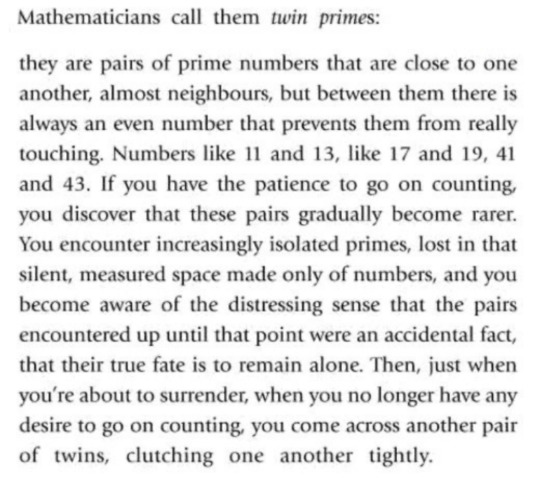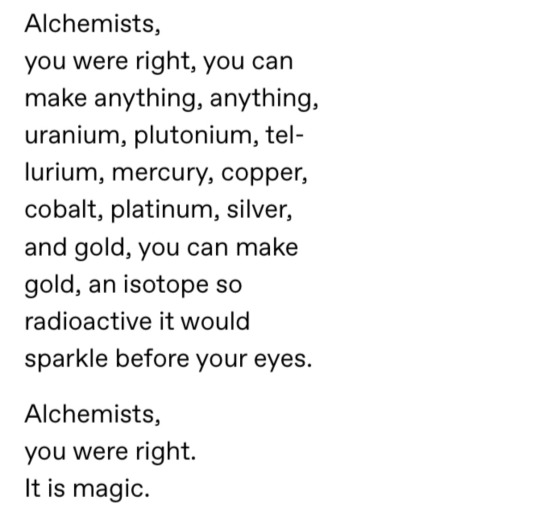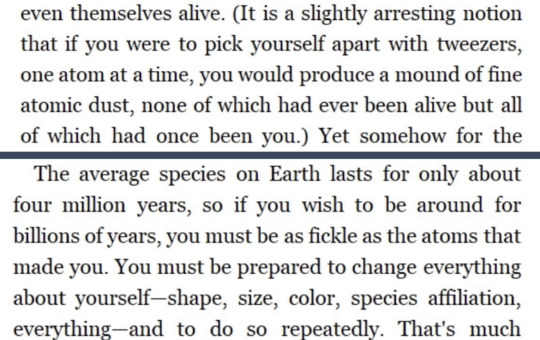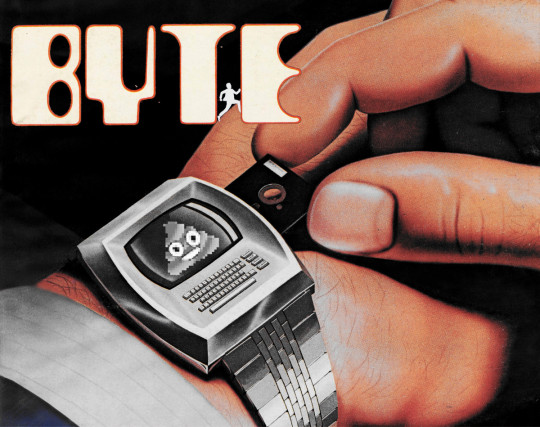#Web of Science
Explore tagged Tumblr posts
Text
EPUB Solutions Private Limited
In today's academic and research-focused environment, getting your scholarly article published in high-impact journals can greatly boost your academic reputation and visibility. However, navigating the publication process can be quite challenging, requiring not only high-quality research but also expert guidance.
This is where EPUB Solutions Private Limited steps in. We provide specialized services for publishing scholarly articles and offer consultation to help researchers get their work into prestigious research database journals like SCOPUS, WEB OF SCIENCE, DOAJ, and more. About us EPUB is committed to fostering inclusion, equality, accessibility, and diversity in scholarly publishing. Established in 2014 in Gurgaon, India, and officially launched in 2023, we have been publishing research articles in collaboration with numerous reputable journals indexed in major research databases, including SCOPUS by Elsevier, Web of Science (formerly Thomson Reuters), UGC Care, Google Scholar, PubMed, ABDC, DOAJ, SJR, and more.
Additionally, we offer Crossref and DOI indexing for incoming research articles, enhancing the journal impact factor for our authors' work. Our services span a wide range of scholarly fields, including Engineering, Medicine, Pharmaceuticals, Psychology, Law, Business, Education, and many others.
We provide publishing options in both open access and closed access journals, with a variety of free and paid publication choices. We are proud to have served over 10,000 satisfied customers across more than 180 countries and are dedicated to continuing our high-quality services for our valued authors. Why Choose EPUB Solutions Private Limited?
Publishing in high-impact journals is essential for researchers, academics, and professionals across science, technology, and the humanities. At EPUB Solutions, we recognize the hurdles that come with the publication process and offer comprehensive solutions to streamline your experience. Our services ensure that your article is not only published but also positioned for optimal visibility in global research databases.
Here’s why you should partner with us:
Expert Consultation – Our consultants, with years of experience in scholarly publishing, provide tailored assistance in preparing your research for publication, offering valuable insights on structure, content, and quality.
Efficient Publishing Process – In academic publishing, time is critical. We focus on the swift publication of your articles without sacrificing quality, ensuring your work reaches the appropriate audience promptly. Access to Top-Tier Databases – We specialize in publishing research in well-respected databases like SCOPUS, WEB OF SCIENCE, and DOAJ. Our strong connections with these platforms help ensure that your work receives the credibility and visibility it deserves.
Comprehensive Services – From manuscript preparation to final publication, we handle every aspect of the process. Our offerings include article writing, editing, formatting, submission, and post-publication support. Vision and Mission of EPUB Vision: Our goal is to establish ourselves as a global leader in scholarly publication services, known for our dedication to quality, innovation, and reliability. We aim to support academic excellence by enabling the swift sharing of research across the globe, advocating for open-access publishing, and increasing the visibility and impact of scholarly work. By embracing continuous innovation, we seek to improve the future of academic publishing for the benefit of research communities worldwide.
Mission: At EPUB Solutions Private Limited, we strive to empower researchers and authors by offering expert support and consultation for their publication needs. Our commitment is to deliver high-quality scholarly articles promptly and efficiently, ensuring they reach top-tier research databases. Through our services, we aim to enhance global access to academic knowledge and assist our clients in making a meaningful impact in their fields. Our Scholarly Article Publication Services
At EPUB Solutions, we provide a wide array of services tailored to meet the needs of researchers, academicians, and professionals. Here’s a brief overview of what we offer:
Scholarly Article Writing and Editing
A well-crafted article is essential for successful publication. Our team of experienced writers and editors collaborates with you to enhance your research, ensuring that your article meets the highest academic standards. Whether it’s refining your thesis statement, enhancing clarity, or adhering to journal formatting guidelines, we offer expert assistance at every step.
Language Editing: Our team guarantees that your article is free from grammatical mistakes, inconsistencies, and awkward phrasing.
Academic Writing Style: We help you adopt the right tone and style for scholarly writing to satisfy the requirements of leading journals.
Formatting and Layout
Proper formatting is vital for the acceptance of your article by high-impact journals. We are well-versed in the specific formatting requirements of journals indexed in SCOPUS, WEB OF SCIENCE, DOAJ, and other esteemed databases. Our formatting service ensures that your article complies with journal-specific guidelines, making it ready for submission.
Tailored Formatting: Each journal has its unique format. We provide customized formatting for each database.
Professional Layout: We ensure that the structure, references, tables, and figures are correctly positioned and formatted.
Manuscript Submission and Journal Selection With a multitude of academic journals available, selecting the right one for your article is crucial for successful publication. We offer guidance on journal selection, ensuring your research is submitted to a journal that aligns with your area of study.
Journal Selection Guidance: We evaluate your article and recommend the most suitable journal based on your research topic.
Efficient Submission Process: Our team manages the entire submission process, ensuring your manuscript is submitted accurately and promptly.
Post-Publication Support and Promotion
Publishing your article is just the beginning. At EPUB Solutions, we offer post-publication support to help you enhance the reach and impact of your research.
Research Promotion: We assist with promoting your work on social media, academic networking sites, and at conferences to ensure it reaches the appropriate audience.
Citation Tracking: We help you monitor citations of your article and provide insights on how to boost its impact factor. Journals Included in EPUB
At EPUB Solutions Private Limited, we assist you in publishing your research in some of the most esteemed journals across various disciplines. Here are a few of the notable journals we collaborate with: Natural Volatiles and Essential Oils
Essential oils, natural products, and their applications in health, industry, and agriculture. Indexed in leading research databases. Perfect for studies on the chemistry and biology of essential oils. Journal of Advanced Zoology
Animal behavior, ecology, evolutionary biology, and conservation. A platform dedicated to publishing zoological and biodiversity research. African Journal of Biological Sciences (South Africa)
Biological sciences with an emphasis on Africa’s ecological and environmental challenges. Topics encompass biotechnology, biodiversity, and environmental science. European Economic Letters
Concise, high-impact articles on economics, policy, and financial studies. A respected venue for global economic research. European Journal of Molecular & Clinical Medicine
Medical and clinical research, molecular biology, diagnostics, and therapeutic advancements. A platform for pioneering medical research. International Journal of Food and Nutritional Sciences This journal publishes research related to food science, nutrition, and their implications for public health. It encompasses a range of topics, including food chemistry, food safety, dietetics, clinical nutrition, and sustainable food practices. EPUB Solutions: PhD Thesis Writing Services
At EPUB Solutions Private Limited, we specialize in providing top-notch PhD thesis writing services designed to help you create a high-quality, thoroughly researched thesis. Our skilled team offers:
Comprehensive Research: Detailed research customized to your specific field of study.
Expert Writing: Clear, concise, and academically rigorous writing that aligns with your university’s standards.
Structured Format: Proper organization and formatting in accordance with academic guidelines.
Personalized Assistance: Dedicated support throughout the writing process, ensuring your thesis showcases your unique ideas. The Future of Academic Publishing: Key Trends
Open Access Models: Open access is set to become the norm, allowing everyone to access academic research without any barriers.
Technological Advancements: Innovations like AI, blockchain, and multimedia will simplify publishing processes, improve transparency, and provide interactive content.
Focus on Research Impact: There will be a shift from traditional impact factors to alternative metrics (altmetrics) that better reflect real-world impact and engagement.
Interdisciplinary Collaboration: We will see an increase in interdisciplinary research, with platforms that facilitate collaborations across different fields to address global challenges.
Improved Peer Review: The implementation of open and automated peer review systems will promote transparency, fairness, and quicker publication timelines.
Diverse and Inclusive Practices: There will be a stronger focus on inclusivity in publishing, ensuring that diverse voices are heard and that research opportunities are accessible to all.
Data Sharing Integration: There will be a push for sharing raw data and methodologies to enhance transparency, reproducibility, and collaboration. Ready to Publish with EPUB Solutions Private Limited?
If you're looking to advance your academic career, EPUB Solutions Private Limited is here to assist you in getting your research published in some of the top journals worldwide. We offer comprehensive publishing support, from manuscript preparation and professional editing to ensuring your article is submitted to the appropriate journals indexed in esteemed databases like SCOPUS, Web of Science, DOAJ, and others.
With our tailored consultation, we help you navigate the process of choosing the ideal journal for your research, ensuring your work meets the highest academic standards. Our prompt and efficient approach guarantees that your research reaches the global academic community swiftly, allowing you to make a meaningful impact in your field. Let us help you share your research with the world—we’re ready when you are.
1 note
·
View note
Text
Additional Opportunities for Submission:
Should your research interests align with other disciplines, we are pleased to inform you of several other journals currently open for submissions:
**The Journal of Infrastructure, Policy and Development** - Scopus Indexed: [JIPD Journal Link]
**Molecular & Cellular Biomechanics** - EI & Scopus Indexed with 1 citescore: [MCB Journal Link]
**Psycho-Oncologie** - SCIE & Scopus: [P-O Journal Link]
**Advances in Differential Equations and Control Processes** - ESCI: [ADECP Journal Link]
**Sound & Vibration** - ESCI, Scopus, & EI: [SV Journal Link]
We welcome scholars to submit their work to any of these prestigious journals based on their specific areas of expertise.
learn more info plz contact email:[email protected]
1 note
·
View note
Text























80s movie blinkies
#blinkies ⊹#blinkie#80s#movies#horror#friday the 13th#reanimator#ghostbusters#the breakfast club#blinkies#web graphics#carrd material#web resources#rentry#graphics#web decor#top gun#beetlejuice#labyrinth#the terminator#the fly#zapped#the princess bride#weird science#ferris bueller's day off#cujo#back to the future#the lost boys#tlb
2K notes
·
View notes
Text










What is the difference between a cathedral and a physics lab? Are they not both saying: Hello?
Paolo Giordano, “The Solitude of Prime Numbers” / Antonio Tonelli / Laura Giplin, “A Toast to the Alchemists” / Dennis Overbye, “Music of the Heavens Turns Out to Sound a Lot Like a B Flat” / Carina Nebula / Marie Howe, “Singularity” / Alan Bean, “Is Anyone Out There?” / Bill Bryson, “A Short History of Nearly Everything” / Garrett Lee, “Canyon” / Whit Bronaugh, “The Trees That Miss The Mammoths”
#this is one of my favourite things in the world#mine#compilations#parallels#web weaving#web weave#words#poetry#comparatives#stem#science#scienceblr#space#on nature
22K notes
·
View notes
Text
Hope ur happy medic shippers
#tf2#art#nostalgia#old internet#old web#digital art#team fortress 2#2010s#2010s nostalgia#tf2 fanart#tf2 medic#tf2 sniper#tf2 spy#tf2 heavy#tf2 pyro#tf2 engineer#tf2 soldier#tf2 scout#tf2 demoman#mediscout#bush medicine#solmedic#jaegerbombs#science party#gentle surgery#heavymedic#animation#flash animation#my art
1K notes
·
View notes
Text
What are Web of Science Journals?
The Web of Science Journals selection process begins by identifying the most appropriate database(s) for your research topic. Once you’ve done that, look at the impact factor and citation data for the journals in those databases to get an idea of which are most widely read and cited. You can also read through the journal’s aims and scope to see if it fits your article well.
If you still need to decide which journal to submit to, there are other things to consider, such as publication fees, open-access options, and editor experience. Once you’ve considered all of these factors, you should be well on your way to finding the perfect home for your research!
0 notes
Text

1K notes
·
View notes
Text

Tomorrow Feels Closer Than Ever
#nathan olsen#sundae comics#comics#webcomics#webcomic#web comic#og post#comic strip#life on mars#scifiart#science fiction#sci fi comics#dystopian
694 notes
·
View notes
Text









We are a way for the cosmos to know itself
#words#web weave#art#web weaving#prose#poetry#carl sagan#science#astronomy#biology#neil degrasse tyson#poetic science#comparatives
506 notes
·
View notes
Text

Orb-weaver web.
Elementary science. 1908. Processed image,
Internet Archive
490 notes
·
View notes
Text
There Were Always Enshittifiers

I'm on a 20+ city book tour for my new novel PICKS AND SHOVELS. Catch me in DC TONIGHT (Mar 4), and in RICHMOND TOMORROW (Mar 5). More tour dates here. Mail-order signed copies from LA's Diesel Books.

My latest Locus column is "There Were Always Enshittifiers." It's a history of personal computing and networked communications that traces the earliest days of the battle for computers as tools of liberation and computers as tools for surveillance, control and extraction:
https://locusmag.com/2025/03/commentary-cory-doctorow-there-were-always-enshittifiers/
The occasion for this piece is the publication of my latest Martin Hench novel, a standalone book set in the early 1980s called "Picks and Shovels":
https://us.macmillan.com/books/9781250865908/picksandshovels
The MacGuffin of Picks and Shovels is a "weird PC" company called Fidelity Computing, owned by a Mormon bishop, a Catholic priest, and an orthodox rabbi. It sounds like the setup for a joke, but the punchline is deadly serious: Fidelity Computing is a pyramid selling cult that preys on the trust and fellowship of faith groups to sell the dreadful Fidelity 3000 PC and its ghastly peripherals.
You see, Fidelity's products are booby-trapped. It's not merely that they ship with programs whose data-files can't be read by apps on any other system – that's just table stakes. Fidelity's got a whole bag of tricks up its sleeve – for example, it deliberately damages a specific sector on every floppy disk it ships. The drivers for its floppy drive initialize any read or write operation by checking to see if that sector can be read. If it can, the computer refuses to recognize the disk. This lets the Reverend Sirs (as Fidelity's owners style themselves) run a racket where they sell these deliberately damaged floppies at a 500% markup, because regular floppies won't work on the systems they lure their parishioners into buying.
Or take the Fidelity printer: it's just a rebadged Okidata ML-80, the workhorse tractor feed printer that led the market for years. But before Fidelity ships this printer to its customers, they fit it with new tractor feed sprockets whose pins are slightly more widely spaced than the standard 0.5" holes on the paper you can buy in any stationery store. That way, Fidelity can force its customers to buy the custom paper that they exclusively peddle – again, at a massive markup.
Needless to say, printing with these wider sprocket holes causes frequent jams and puts a serious strain on the printer's motors, causing them to burn out at a high rate. That's great news – for Fidelity Computing. It means they get to sell you more overpriced paper so you can reprint the jobs ruined by jams, and they can also sell you their high-priced, exclusive repair services when your printer's motors quit.
Perhaps you're thinking, "OK, but I can just buy a normal Okidata printer and use regular, cheap paper, right?" Sorry, the Reverend Sirs are way ahead of you: they've reversed the pinouts on their printers' serial ports, and a normal printer won't be able to talk to your Fidelity 3000.
If all of this sounds familiar, it's because these are the paleolithic ancestors of today's high-tech lock-in scams, from HP's $10,000/gallon ink to Apple and Google's mobile app stores, which cream a 30% commission off of every dollar collected by an app maker. What's more, these ancient, weird misfeatures have their origins in the true history of computing, which was obsessed with making the elusive, copy-proof floppy disk.
This Quixotic enterprise got started in earnest with Bill Gates' notorious 1976 "open letter to hobbyists" in which the young Gates furiously scolds the community of early computer hackers for its scientific ethic of publishing, sharing and improving the code that they all wrote:
https://en.wikipedia.org/wiki/An_Open_Letter_to_Hobbyists
Gates had recently cloned the BASIC programming language for the popular Altair computer. For Gates, his act of copying was part of the legitimate progress of technology, while the copying of his colleagues, who duplicated Gates' Altair BASIC, was a shameless act of piracy, destined to destroy the nascent computing industry:
As the majority of hobbyists must be aware, most of you steal your software. Hardware must be paid for, but software is something to share. Who cares if the people who worked on it get paid?
Needless to say, Gates didn't offer a royalty to John Kemeny and Thomas Kurtz, the programmers who'd invented BASIC at Dartmouth College in 1963. For Gates – and his intellectual progeny – the formula was simple: "When I copy you, that's progress. When you copy me, that's piracy." Every pirate wants to be an admiral.
For would-be ex-pirate admirals, Gates's ideology was seductive. There was just one fly in the ointment: computers operate by copying. The only way a computer can run a program is to copy it into memory – just as the only way your phone can stream a video is to download it to its RAM ("streaming" is a consensus hallucination – every stream is a download, and it has to be, because the internet is a data-transmission network, not a cunning system of tubes and mirrors that can make a picture appear on your screen without transmitting the file that contains that image).
Gripped by this enshittificatory impulse, the computer industry threw itself headfirst into the project of creating copy-proof data, a project about as practical as making water that's not wet. That weird gimmick where Fidelity floppy disks were deliberately damaged at the factory so the OS could distinguish between its expensive disks and the generic ones you bought at the office supply place? It's a lightly fictionalized version of the copy-protection system deployed by Visicalc, a move that was later publicly repudiated by Visicalc co-founder Dan Bricklin, who lamented that it confounded his efforts to preserve his software on modern systems and recover the millions of data-files that Visicalc users created:
http://www.bricklin.com/robfuture.htm
The copy-protection industry ran on equal parts secrecy and overblown sales claims about its products' efficacy. As a result, much of the story of this doomed effort is lost to history. But back in 2017, a redditor called Vadermeer unearthed a key trove of documents from this era, in a Goodwill Outlet store in Seattle:
https://www.reddit.com/r/VintageApple/comments/5vjsow/found_internal_apple_memos_about_copy_protection/
Vaderrmeer find was a Apple Computer binder from 1979, documenting the company's doomed "Software Security from Apple's Friends and Enemies" (SSAFE) project, an effort to make a copy-proof floppy:
https://archive.org/details/AppleSSAFEProject
The SSAFE files are an incredible read. They consist of Apple's best engineers beavering away for days, cooking up a new copy-proof floppy, which they would then hand over to Apple co-founder and legendary hardware wizard Steve Wozniak. Wozniak would then promptly destroy the copy-protection system, usually in a matter of minutes or hours. Wozniak, of course, got the seed capital for Apple by defeating AT&T's security measures, building a "blue box" that let its user make toll-free calls and peddling it around the dorms at Berkeley:
https://512pixels.net/2018/03/woz-blue-box/
Woz has stated that without blue boxes, there would never have been an Apple. Today, Apple leads the charge to restrict how you use your devices, confining you to using its official app store so it can skim a 30% vig off every dollar you spend, and corralling you into using its expensive repair depots, who love to declare your device dead and force you to buy a new one. Every pirate wants to be an admiral!
https://www.vice.com/en/article/tim-cook-to-investors-people-bought-fewer-new-iphones-because-they-repaired-their-old-ones/
Revisiting the early PC years for Picks and Shovels isn't just an excuse to bust out some PC nostalgiacore set-dressing. Picks and Shovels isn't just a face-paced crime thriller: it's a reflection on the enshittificatory impulses that were present at the birth of the modern tech industry.
But there is a nostalgic streak in Picks and Shovels, of course, represented by the other weird PC company in the tale. Computing Freedom is a scrappy PC startup founded by three women who came up as sales managers for Fidelity, before their pangs of conscience caused them to repent of their sins in luring their co-religionists into the Reverend Sirs' trap.
These women – an orthodox lesbian whose family disowned her, a nun who left her order after discovering the liberation theology movement, and a Mormon woman who has quit the church over its opposition to the Equal Rights Amendment – have set about the wozniackian project of reverse-engineering every piece of Fidelity hardware and software, to make compatible products that set Fidelity's caged victims free.
They're making floppies that work with Fidelity drives, and drives that work with Fidelity's floppies. Printers that work with Fidelity computers, and adapters so Fidelity printers will work with other PCs (as well as resprocketing kits to retrofit those printers for standard paper). They're making file converters that allow Fidelity owners to read their data in Visicalc or Lotus 1-2-3, and vice-versa.
In other words, they're engaged in "adversarial interoperability" – hacking their own fire-exits into the burning building that Fidelity has locked its customers inside of:
https://www.eff.org/deeplinks/2019/10/adversarial-interoperability
This was normal, back then! There were so many cool, interoperable products and services around then, from the Bell and Howell "Black Apple" clones:
https://forum.vcfed.org/index.php?threads%2Fbell-howell-apple-ii.64651%2F
to the amazing copy-protection cracking disks that traveled from hand to hand, so the people who shelled out for expensive software delivered on fragile floppies could make backups against the inevitable day that the disks stopped working:
https://en.wikipedia.org/wiki/Bit_nibbler
Those were wild times, when engineers pitted their wits against one another in the spirit of Steve Wozniack and SSAFE. That era came to a close – but not because someone finally figured out how to make data that you couldn't copy. Rather, it ended because an unholy coalition of entertainment and tech industry lobbyists convinced Congress to pass the Digital Millennium Copyright Act in 1998, which made it a felony to "bypass an access control":
https://www.eff.org/deeplinks/2016/07/section-1201-dmca-cannot-pass-constitutional-scrutiny
That's right: at the first hint of competition, the self-described libertarians who insisted that computers would make governments obsolete went running to the government, demanding a state-backed monopoly that would put their rivals in prison for daring to interfere with their business model. Plus ça change: today, their intellectual descendants are demanding that the US government bail out their "anti-state," "independent" cryptocurrency:
https://www.citationneeded.news/issue-78/
In truth, the politics of tech has always contained a faction of "anti-government" millionaires and billionaires who – more than anything – wanted to wield the power of the state, not abolish it. This was true in the mainframe days, when companies like IBM made billions on cushy defense contracts, and it's true today, when the self-described "Technoking" of Tesla has inserted himself into government in order to steer tens of billions' worth of no-bid contracts to his Beltway Bandit companies:
https://www.reuters.com/world/us/lawmakers-question-musk-influence-over-verizon-faa-contract-2025-02-28/
The American state has always had a cozy relationship with its tech sector, seeing it as a way to project American soft power into every corner of the globe. But Big Tech isn't the only – or the most important – US tech export. Far more important is the invisible web of IP laws that ban reverse-engineering, modding, independent repair, and other activities that defend American tech exports from competitors in its trading partners.
Countries that trade with the US were arm-twisted into enacting laws like the DMCA as a condition of free trade with the USA. These laws were wildly unpopular, and had to be crammed through other countries' legislatures:
https://pluralistic.net/2024/11/15/radical-extremists/#sex-pest
That's why Europeans who are appalled by Musk's Nazi salute have to confine their protests to being loudly angry at him, selling off their Teslas, and shining lights on Tesla factories:
https://www.malaymail.com/news/money/2025/01/24/heil-tesla-activists-protest-with-light-projection-on-germany-plant-after-musks-nazi-salute-video/164398
Musk is so attention-hungry that all this is as apt to please him as anger him. You know what would really hurt Musk? Jailbreaking every Tesla in Europe so that all its subscription features – which represent the highest-margin line-item on Tesla's balance-sheet – could be unlocked by any local mechanic for €25. That would really kick Musk in the dongle.
The only problem is that in 2001, the US Trade Rep got the EU to pass the EU Copyright Directive, whose Article 6 bans that kind of reverse-engineering. The European Parliament passed that law because doing so guaranteed tariff-free access for EU goods exported to US markets.
Enter Trump, promising a 25% tariff on European exports.
The EU could retaliate here by imposing tit-for-tat tariffs on US exports to the EU, which would make everything Europeans buy from America 25% more expensive. This is a very weird way to punish the USA.
On the other hand, not that Trump has announced that the terms of US free trade deals are optional (for the US, at least), there's no reason not to delete Article 6 of the EUCD, and all the other laws that prevent European companies from jailbreaking iPhones and making their own App Stores (minus Apple's 30% commission), as well as ad-blockers for Facebook and Instagram's apps (which would zero out EU revenue for Meta), and, of course, jailbreaking tools for Xboxes, Teslas, and every make and model of every American car, so European companies could offer service, parts, apps, and add-ons for them.
When Jeff Bezos launched Amazon, his war-cry was "your margin is my opportunity." US tech companies have built up insane margins based on the IP provisions required in the free trade treaties it signed with the rest of the world.
It's time to delete those IP provisions and throw open domestic competition that attacks the margins that created the fortunes of oligarchs who sat behind Trump on the inauguration dais. It's time to bring back the indomitable hacker spirit that the Bill Gateses of the world have been trying to extinguish since the days of the "open letter to hobbyists." The tech sector built a 10 foot high wall around its business, then the US government convinced the rest of the world to ban four-metre ladders. Lift the ban, unleash the ladders, free the world!
In the same way that futuristic sf is really about the present, Picks and Shovels, an sf novel set in the 1980s, is really about this moment.
I'm on tour with the book now – if you're reading this today (Mar 4) and you're in DC, come see me tonight with Matt Stoller at 6:30PM at the Cleveland Park Library:
https://www.loyaltybookstores.com/picksnshovels
And if you're in Richmond, VA, come down to Fountain Bookshop and catch me with Lee Vinsel tomorrow (Mar 5) at 7:30PM:
https://fountainbookstore.com/events/1795820250305

If you'd like an essay-formatted version of this post to read or share, here's a link to it on pluralistic.net, my surveillance-free, ad-free, tracker-free blog:
https://pluralistic.net/2025/03/04/object-permanence/#picks-and-shovels
#pluralistic#picks and shovels#history#web theory#marty hench#martin hench#red team blues#locus magazine#drm#letter to computer hobbyists#bill gates#computer lib#science fiction#crime fiction#detective fiction
495 notes
·
View notes
Note
do you have anything science related ? or stuff with smiley faces!? :D




























:D !! SMIL3Y n SC1ENCE 🧪
divider here! X
#request#ty for the request!#old web#web graphics#carrd resources#web resources#old internet#rentry resources#stamps#blinkies#webcore#sciencecore#science#smiley#tw eyestrain#tw flashing lights#aggnm
840 notes
·
View notes
Text









Joshua Moritz, 'Is There a God-Shaped Hole at the Heart of Mathematics?' // Bluepoch Games, Reverse 1999 // Li C. Tien, "Right Triangle" // Proclus Diadochus // @lothmoth // Lisa Rosenberg, "Introduction to Methods of Mathematical Physics" // Wassily Kadinsky, watercolour abstract // Albert Einstein // see 4
#theme: the beauty of mathematics#web weaving#webs#web weave#is this too niche#sorry people who hate maths#poetry#prose#aesthetic#prose poetry#literature#art#quotes#philosophy#mathematics#science#writing#poems#poems and poetry#parallels#compilation#reverse 1999#inspo#painting#book quotes#novels#maths
2K notes
·
View notes
Text










ᛝ 𝓓anny 𝓟hantom 𓏏 happy dannypocalypse f2u w 。 repost ᵒʳ like ◟-͜ ◞ ˖ ◟-͜ ◞ ˖ ◟-͜ ꔫ

#ℰ ˖ pixels 🪡#dannypocalypse#pixel#sozai#pixels#carrd stuff#favicon#favicons#rentry graphics#rentry resources#sntry graphics#pixel graphics#rentry pixels#green#green pixels#sntry decor#decor#decome#carrd#rentry#sntry gif#rentry gif#carrd gifs#old web gifs#recolor#danny phantom#going ghost#ghost pixels#science pixels
1K notes
·
View notes
Text
21, unsorted






























#blinkies#carrd graphics#web graphics#carrd resources#da stamps#ai kin#robot kin#robots#spacecore#slime#snail#clock#userboxes#artist#science#sciencecore#the wild robot#miracle musical#hawaii part 2#the mind electric#aroace#aromantic#asexual#will wood#against the kitchen floor#tumblr boops#favicons
356 notes
·
View notes
Text








— BLINKIE SET #6 . . . ENTHUSIASTS !
I've been looking for a new font to use for blinkies with longer text, and I'm really happy with how they've been coming out using the impostor! super excited to make more of these & improve their look over time! :o)
#eye strain#flashing lights#blinkies#old internet#old web#page decor#graphics#(#interests#hobbies#fish enthusiast#selfship enthusiast#alien enthusiast#horror enthusiast#makeup enthusiast#science enthusiast#fungus enthusiast#robot enthusiast#)
368 notes
·
View notes